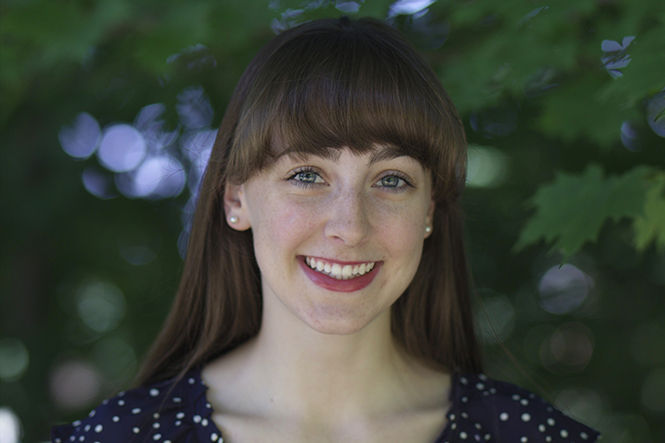Honors College alumna excels after graduation
Allison Moats, a Kent State Honors College graduate who is currently attending Harvard University for human evolutionary biology, is the 2014 Portz Scholar.
September 1, 2014
The National Collegiate Honors Council (NCHC) named Allison Moats, an Honors College graduate from Ravenna, the 2014 Portz Scholar.
The Portz Scholar Award recognizes outstanding theses from Honors students across the country, according to a press release. Each institution may submit one thesis, and this year there were submissions from 39 colleges nationwide. Moats, chosen as one of four selected to be a Portz Scholar, also will be the seventh recipient of the award from Kent State.
“To be a national winner and representation of Kent State University is a great honor, and I look forward to presenting my paper at the NCHC National Conference in Denver this November,” Moats said.
Moats is a graduate of the College of Arts and Sciences, with a bachelor’s degree from the Department of Anthropology. For her thesis, she compared the proximal femoral neck angles of an ancient and modern population, and examined them for the presence or absence of two pathologies, cam deformity and Slipped Capital Femoral Epiphysis (SCFE).
Professor Linda Spurlock, who worked closely with Moats and guided her on the project, said, “It was wonderful to be Allison’s mentor and watch her gain so much anatomical knowledge and skill with data analysis. She came to take charge of her project.”
Don Palmer, interim dean of the Honors College, encourages students to do theses.
“Doing independent research and creative activity is a different kind of learning,” he said. “Both employers and graduate schools look at this as documentation that students can direct their own education.”
Moats began attending Harvard last week, where she plans to get her doctorate in Human Evolutionary Biology and said she looks forward to her future endeavors in science.
“Biological anthropology integrates so many fields of science while remaining human focused,” she said. “Now, in my graduate work, I am returning to what interested me originally, biology, but will be studying DNA from an anthropological perspective.”
Upon graduation, Moats hopes to conduct research and be a professor at a university.
Although she left Kent to continue her studies, Moats offered advice for current students.
”Something I would encourage anyone entering college to do is to talk to the professors you find interesting and ask if there are any research opportunities,” Moats said. “Even if you’re afraid, you can’t take on a project alone. There are many research opportunities that are shared, and professors willing to help you every step of the way. Why get just a degree when you can get a degree and research experience?”
Read Moats’ thesis, entitled “Abnormalities in the Growth and Development of the Proximal Femur: Comparing Ancient to Modern Populations and Their Incidences of Slipped Capital Femoral Epiphysis and Cam Deformity,” here.
Contact Jamie Brian at [email protected]

























